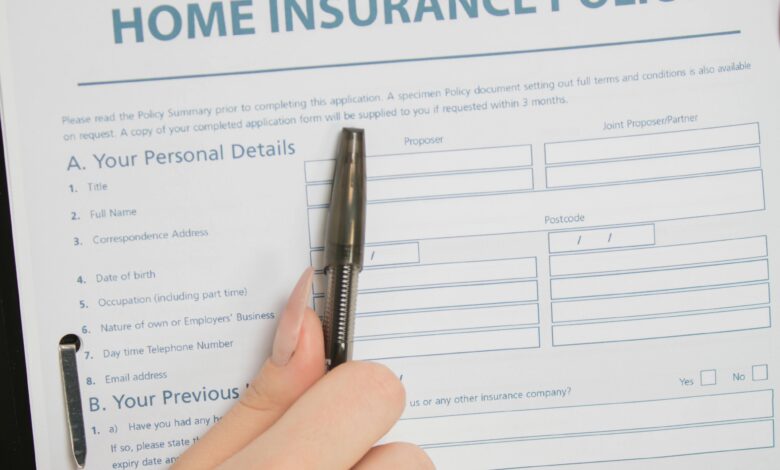Home Insurance for Renters: What You Need to Know

Renting a home or apartment offers flexibility and freedom, but it also comes with its own set of responsibilities—especially when it comes to protecting your personal belongings and financial well-being. While landlords typically carry insurance to cover the structure of the building, they do not extend that coverage to your possessions or liability risks. This is where renters insurance comes in. In this comprehensive guide, we’ll explore everything you need to know about renters insurance, including what it covers, how much it costs, why it’s important, and tips for choosing the right policy.
1. What Is Renters Insurance?
Renters insurance, also known as tenant insurance, is a type of policy designed specifically for individuals who rent their living space. Unlike homeowners insurance, which covers both the structure and contents of a home, renters insurance focuses solely on your personal property and liability while renting. It provides financial protection against unexpected events such as theft, fire, water damage, and even lawsuits.
2. Why Do You Need Renters Insurance?
Many renters mistakenly believe that their landlord’s insurance will cover their belongings or liability issues. However, this is rarely the case. Here are several reasons why renters insurance is essential:
a) Protects Your Belongings
From electronics and furniture to clothing and jewelry, the average renter owns thousands of dollars’ worth of personal property. Without renters insurance, replacing these items after a disaster or theft could be financially devastating.
b) Covers Liability Risks
If someone gets injured in your rental unit or if you accidentally cause damage to the property (e.g., starting a kitchen fire), you could face costly legal claims. Renters insurance includes liability coverage to help pay for medical expenses, repairs, or legal fees.
c) Provides Temporary Living Expenses
If your rental becomes uninhabitable due to a covered event (such as a fire or natural disaster), renters insurance can reimburse you for temporary housing costs, meals, and other necessities while repairs are being made.
d) Affordable Peace of Mind
Compared to other types of insurance, renters insurance is relatively inexpensive. For just a few dollars a month, you can gain significant peace of mind knowing you’re protected.
3. What Does Renters Insurance Cover?
Renters insurance policies typically include three main components:
a) Personal Property Coverage
This protects your belongings against perils like theft, vandalism, fire, smoke, lightning, windstorms, and certain types of water damage (e.g., burst pipes). It’s important to note that standard policies may exclude specific events like floods or earthquakes, which require separate riders or additional policies.
- Example: If your laptop, TV, and clothes are stolen during a break-in, your renters insurance would reimburse you for their replacement value up to your policy limit.
b) Liability Protection
Liability coverage helps pay for damages or injuries you’re responsible for, whether inside or outside your rental. This includes accidents involving guests, pets, or incidents that occur off-premises.
- Example: If a visitor slips and falls in your apartment, resulting in medical bills or a lawsuit, your renters insurance can cover those costs.
c) Additional Living Expenses (ALE)
If your rental becomes unlivable due to a covered loss, ALE coverage pays for temporary accommodations, food, transportation, and other necessary expenses until you can return home.
- Example: After a fire renders your apartment uninhabitable, your renters insurance might cover the cost of staying in a hotel and eating out until repairs are completed.
4. How Much Does Renters Insurance Cost?
The cost of renters insurance varies based on several factors, including location, coverage limits, deductible amounts, and the insurer. On average, renters insurance costs between $15 and $30 per month , making it an affordable investment for most tenants.
Factors That Influence Premiums
- Location: Areas prone to crime, severe weather, or natural disasters may have higher premiums.
- Coverage Limits: Higher coverage limits result in higher premiums.
- Deductible Amount: Opting for a higher deductible reduces your monthly premium but increases your out-of-pocket costs in the event of a claim.
- Personal Risk Factors: Owning high-value items (like expensive jewelry) or having a history of frequent claims can affect pricing.
5. Types of Renters Insurance Policies
There are two primary types of renters insurance policies, each determining how your belongings are valued in the event of a claim:
a) Actual Cash Value (ACV)
An ACV policy reimburses you for the depreciated value of your items at the time of the loss. While this option has lower premiums, it may not fully cover the cost of replacing damaged or stolen goods.
- Example: If your five-year-old couch is destroyed in a fire, you’ll receive compensation based on its current market value—not what it would cost to buy a new one.
b) Replacement Cost
A replacement cost policy pays for the full cost of replacing your belongings without accounting for depreciation. Although premiums are higher, this option ensures you won’t have to dip into your savings to restore your possessions.
- Example: If your laptop is stolen, a replacement cost policy will pay enough to purchase a similar model, regardless of its age.
6. Common Exclusions in Renters Insurance
While renters insurance offers broad protection, there are some exclusions to be aware of:
- Floods and Earthquakes: These natural disasters are not covered under standard policies. You’ll need separate flood insurance or earthquake insurance if you live in a high-risk area.
- High-Value Items: Standard policies often impose sub-limits on valuable items like jewelry, art, or collectibles. Consider adding a rider or endorsement for adequate coverage.
- Intentional Damage: Acts of vandalism or intentional destruction caused by the renter are not covered.
- Business Equipment: If you run a business from home, your work-related equipment may require additional coverage.
7. Tips for Choosing the Right Renters Insurance Policy
Selecting the best renters insurance policy involves careful consideration of your needs and budget. Follow these tips to make an informed decision:
a) Assess Your Belongings
Take inventory of your possessions to estimate their total value. This will help you determine how much coverage you need. Documenting items with photos or receipts can also streamline the claims process.
b) Compare Quotes
Shop around and compare quotes from multiple insurers to find competitive rates. Online comparison tools can simplify this process.
c) Review Coverage Options
Decide whether you prefer an ACV or replacement cost policy, and consider adding endorsements for valuable items or unique risks.
d) Check Discounts
Many insurers offer discounts for bundling renters insurance with other policies (like auto insurance), installing safety features (like smoke detectors or security systems), or maintaining good credit.
e) Read the Fine Print
Carefully review the terms and conditions of any policy before purchasing. Pay attention to exclusions, deductibles, and coverage limits to ensure the plan meets your needs.
8. Frequently Asked Questions About Renters Insurance
Q: Is renters insurance required by law?
A: No, renters insurance is not mandated by law. However, some landlords or property management companies may require tenants to carry a policy as part of their lease agreement.
Q: Does renters insurance cover roommates?
A: Typically, no. Each roommate must purchase their own policy unless explicitly stated otherwise in the policy terms.
Q: Can I get renters insurance if I have pets?
A: Yes, but certain breeds of dogs or exotic animals may affect eligibility or premiums. Be sure to disclose all pets when applying for coverage.
Q: Will my renters insurance cover me if I move temporarily?
A: Most policies provide limited coverage for belongings stored in another location, such as a storage unit or vacation home. However, extended stays may require additional coverage.




